“I wrote this story when I was just coming out of the haze and confusion of being a mother. Its original title was “The History of Feminism, Part IV”–which I intended (I think) to be a sort of ironic comment on how far women had come, or how far it was possible to go. But the editor quite rightly suggested it be changed.”
 Mary Grimm is too modest to say it in her “Author’s Note” to this story, but “We” was not a “typical” New Yorker story when Roger Angell and his colleagues had the good sense to publish it, October 17, 1988. The characters are not “important” or even self-important, nor do they hold down high powered jobs in the city. They don’t even live in Cheever country, in the leafy Westchester suburbs of New York. It might as well be Cleveland. (In fact, it is Cleveland, where much of Mary’s work is set, and where she herself resides, and teaches at Case Western Reserve University, where she is Chair of the English Department.)
Mary Grimm is too modest to say it in her “Author’s Note” to this story, but “We” was not a “typical” New Yorker story when Roger Angell and his colleagues had the good sense to publish it, October 17, 1988. The characters are not “important” or even self-important, nor do they hold down high powered jobs in the city. They don’t even live in Cheever country, in the leafy Westchester suburbs of New York. It might as well be Cleveland. (In fact, it is Cleveland, where much of Mary’s work is set, and where she herself resides, and teaches at Case Western Reserve University, where she is Chair of the English Department.)
I remember the first time I read this story. Ray Carver had died that August, and the literary world would lose Donald Barthelme the next year. It seemed as if we were losing essential voices in American literature, and more, voices that had spoken directly to me.
I read “We” and felt that I knew the women in this story, somehow, and could imagine them off the page: doing laundry, ironing, talking to their husbands, or not– bored beyond belief.
And then, the plunge into the mystery of babyhood. I won’t pretend to understand what happens during these years, when a young woman finds herself deep in baby wipes, baby diapers, baby food, baby-changing table, baby’s schedule, and life itself hinges on the timing of a nap. But yes, I have seen it.
The tension in the story between so-called “stay-at-home-moms” and quote, working women, is palpable throughout, as the narrator and Suzanne try to figure how to deal with Virginia, with her “career” at the phone company. But what I admire in this story is its generosity of feeling, the reluctance to judge, the -yes-sisterhood, sans manifesto, and while reading, inescapably encased in gender, I remember that I somehow stood outside this story, but wanted in; I wanted to see how the other team played, sure, but it was like eavesdropping in the locker room. I was just grateful to be able to overhear. I imagine Roger felt that way too, and this is part of the reason why he wanted this story. It is completely without pretension, and wholly itself.
The jump cuts in the story are wonderful, as the women try everything. The transitional “time phrases” mount–
“The first thing we tried…”
“And then…”
“Next: sewing…”
“And then…”
“It was fall…”
“And then I got the flu…”
The time indicators clue us in to what is happening with these women, as they embrace their lives, what they have become, and try to prepare for what cannot really be prepared for. And then–well, it was just time.
“So what happened? Nothing, really.”
The silence of the men folk (for once), coupled with the raw honesty (“But things with them had gotten into a different way, and maybe we thought that was the way it was supposed to be, or maybe we thought it would do no good to try and change”) is balanced by the scraping encounters with women of a different social class, women of “higher educational attainment,” and it is heart- stopping to read the account of what happens at the book reading party, when they are queried about their view of One Hundred Years of Solitude (the unnamed novel in the story by Gabriel Garcia Marquez): “Did we have suggestions for the next book? One of the teachers asked us nicely when we sat balancing our plates and glasses. We said no.”
This class-based silencing, this honest, true voice, without sentiment, flattened of affect, but then the way the last two paragraphs detail and speed up the emotion of the story, the loss of an entire world well loved but little understood even now, with its loving attention to domestic description and to the babies of the story (“the sweet smell of their breath…arms and legs flung out like a star or wound in a tight breathing ball”)–O Mary! You had me from the title, from the very first line!
Line Breaks is a regular feature in which accomplished authors introduce and share their first published stories with the Fictionaut community. Line Breaks is edited by Gary Percesepe. You can read Mary Grimm’s “We” on Fictionaut.
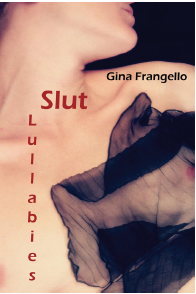
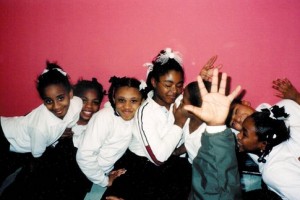 This week on Luna Park,
This week on Luna Park, 
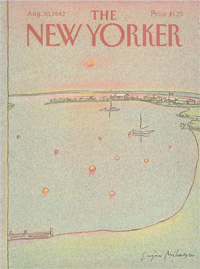 OK, so, if you have not read
OK, so, if you have not read 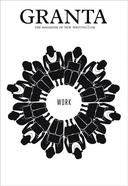
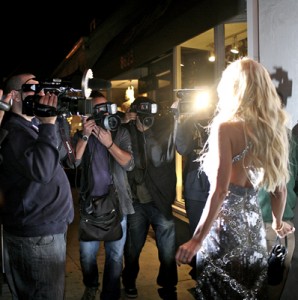
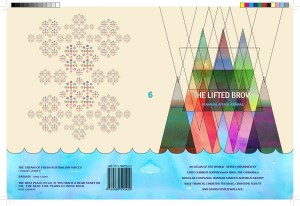
 Out of several entries in the
Out of several entries in the